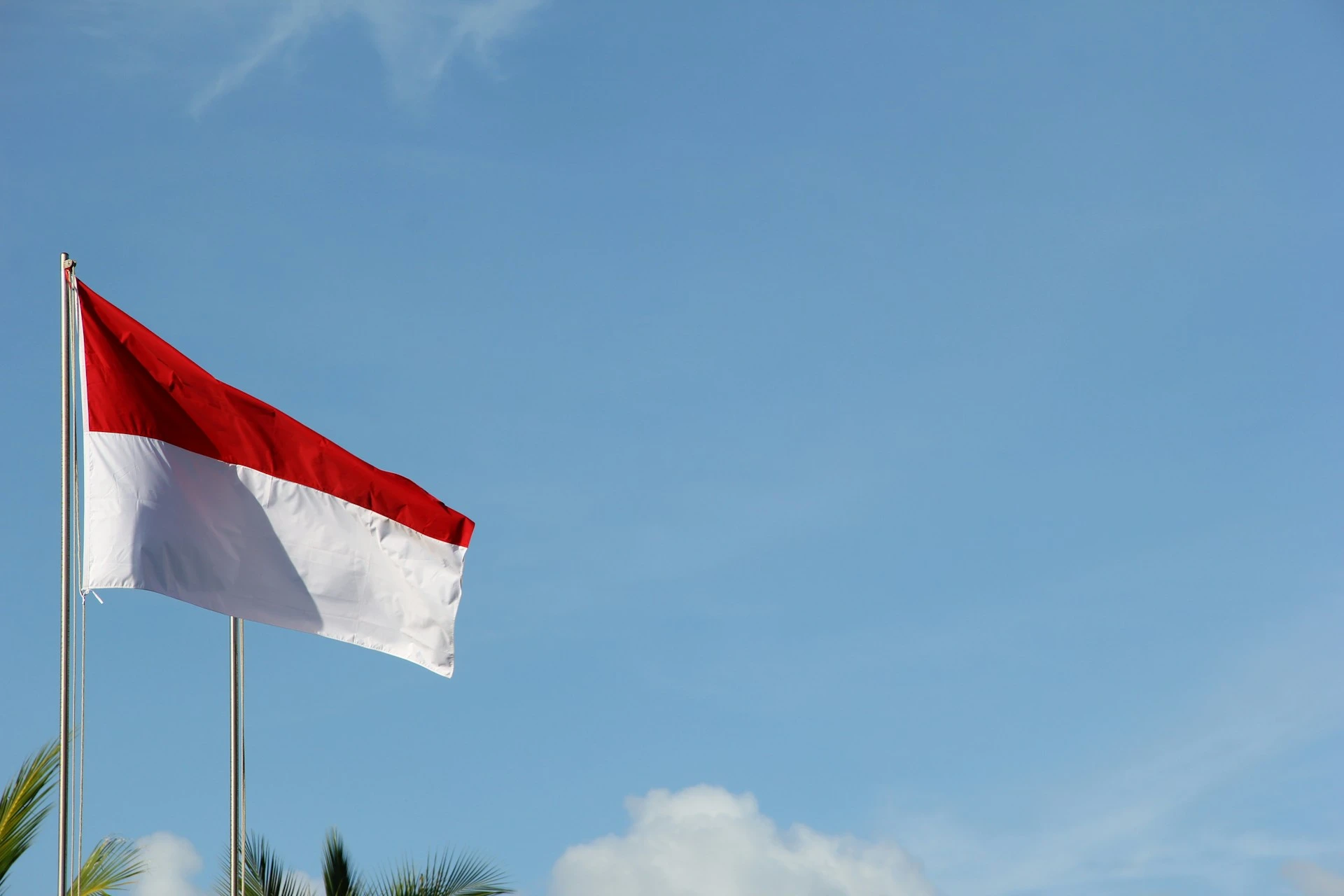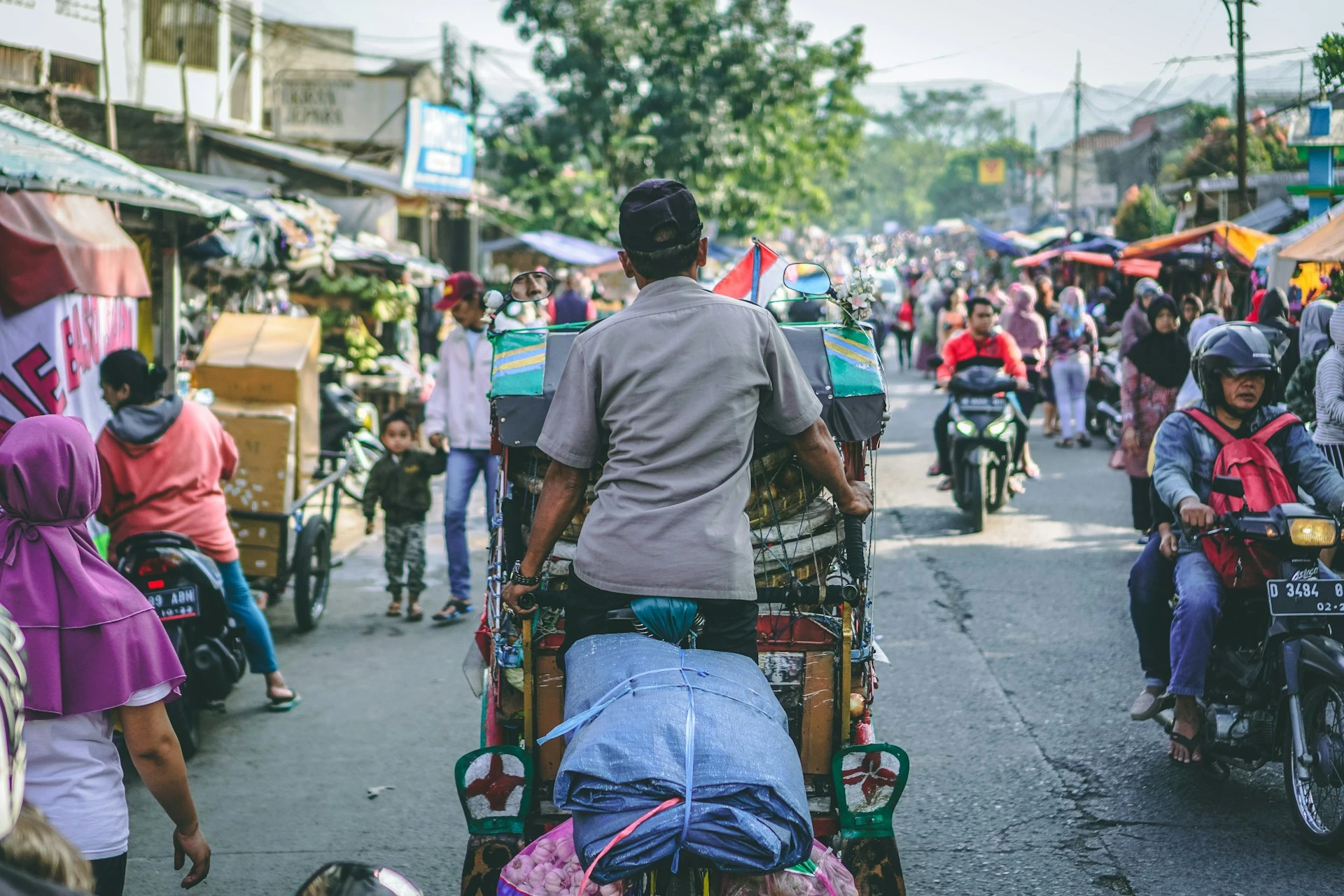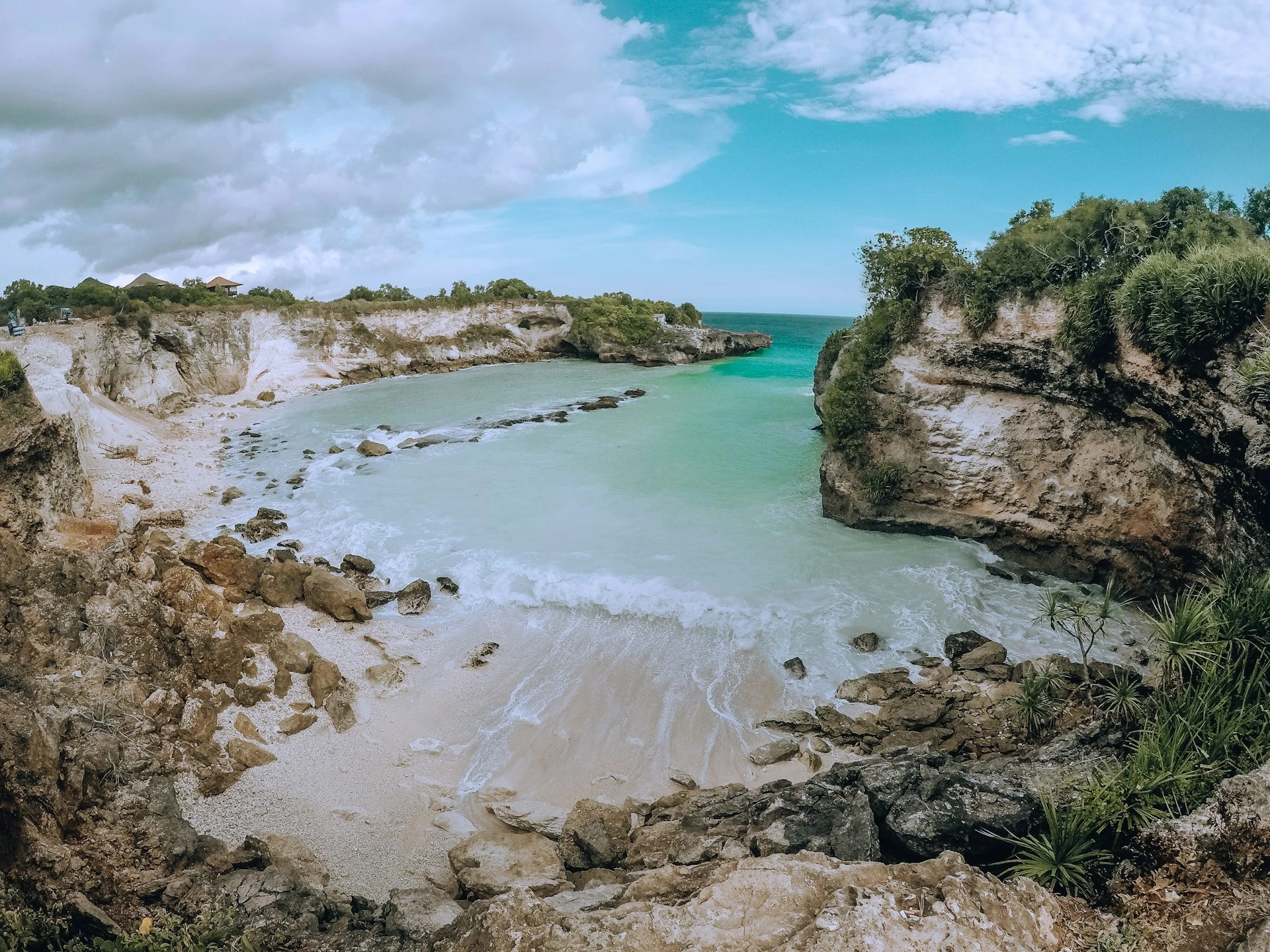Indonesia eVisa – Simple Online Process for Easy Travel


Planning a trip to Indonesia has never been easier, thanks to the Indonesia e Visa system. Whether you’re dreaming of Bali’s beaches, Jakarta’s bustling streets, or Komodo Island’s rare wildlife, you no longer need to deal with long embassy visits and piles of paperwork. The electronic visa makes the entry process faster, smoother, and more convenient for foreign nationals from many countries.
But while the system is designed to save travelers time, the details can still be confusing. Do you need to apply before flying, or can you get a visa once you land? How early should you submit your application? And how much does the electronic visa on arrival cost? These are the questions every traveler has before they set out to visit Indonesia.
This guide breaks everything down into clear, practical steps. You’ll learn how the application process works, what required documents you’ll need, and the rules set by the Indonesian government. Along the way, we’ll also cover safety tips, local laws, and advice for handling emergencies like natural disasters or sudden illness while abroad.
By the end, you’ll be ready to navigate the visa system with confidence and enjoy your travel plans without stress. Whether it’s for leisure, business meetings, or connecting flights through major international airports, the Indonesia eVisa is your key to unlocking the country’s endless adventures.
What is the Indonesia e Visa?
The Indonesia eVisa is an electronic visa system introduced by the Indonesian government to make travel easier for foreign citizens and foreign tourists. Instead of visiting an immigration office or standing in long lines at embassies, travelers can now complete the application process online. Once approved, the visa is sent digitally, and you can use it to enter Indonesia through major airports, land borders, or land crossings.
So, can you get an e-visa for Indonesia? Yes most travelers can apply for one. The Indonesia website for immigration lists eligible nationalities, and the process is designed to be straightforward.
You fill out an online form, upload your required documents, and pay through safe online payment methods. The approved visa arrives by email, and you simply print it or keep a digital copy on your phone.

Unlike traditional visas, there is no need for a visa sticker in your passport before you travel. This makes it especially useful for those who need to plan trips quickly, whether for vacations, business meetings, or emergency travel.
The Indonesian authorities emphasize that the eVisa is valid for both short-term tourism and certain work or family visits, but rules vary depending on the type. Travelers are always encouraged to check the full statement on official channels before confirming travel plans.
In short, the Indonesia eVisa is a fast-track way to get permission to visit the country. It saves time, reduces paperwork, and helps foreign nationals enter smoothly while giving Indonesian immigration full control of arrivals.
Types of Indonesian Visa Options
When planning to visit Indonesia, travelers have a few different visa pathways, and knowing which one applies to you can save time and trouble. The most common choice today is the Indonesia eVisa, but there are other options for foreign nationals depending on the purpose of travel.
The eVisa works for short stays related to tourism, family visits, and some forms of business. It’s quick, digital, and avoids unnecessary trips to a consulate general or immigration office. But Indonesia also offers traditional visas for those with long-term work, study, or residence plans. These often require in-person applications and physical checks.
Then there’s the electronic visa on arrival (e VOA), which lets eligible travelers apply online before departure and finalize the process when they land at international airports like Soekarno Hatta International Airport. This option is especially popular among those booking trips last-minute.
Now, do US citizens need a visa for Indonesia? Yes — even American travelers must apply. The good news is that the electronic visa and eVOA make the process much easier compared to the past, when lining up at counters was the norm. Other travelers from Europe, Asia, and beyond also fall under similar rules.
Each visa has its own required documents and validity period. Some allow single entry, while others cover multiple trips. If you’re unsure, checking the official Indonesia website or consulting a consulate general can provide clarity before you confirm flights or travel plans.
How to Apply Online for an Indonesia eVisa
Step 1. Prepare your documents
Gather a passport (valid), a recent passport photo, and proof of onward flight booking. If relevant, add hotel reservations or an invitation letter for business meetings.
Step 2. Go to the official Indonesia website
Open the immigration portal for visa online services from the Indonesian government.
Step 3.Choose your visa type & create an account
Select the Indonesia eVisa category that fits your trip. Register or sign in.
Step 4. Complete the application form
Enter your full name, passport details, and travel dates. Keep everything consistent with your documents.
Step 5. Upload the required documents
Attach your passport photo, the bio page of your passport, and your onward flight booking. Add any extra paperwork if requested (e.g., hotel booking, business invitation).
Step 6. Pay the fee online
Use accepted online payment methods (credit/debit card). Confirm the payment and keep the receipt/confirmation.
Step 7. Wait for review by Indonesian immigration
Your application moves to Indonesian immigration for processing. Watch your email in case they ask for clarifications.
Step 8. Apply early (timing tip)
Submit at least two weeks before departure. This buffer helps if documents need fixes or if there’s a surge in applications.
Step 9. Receive your electronic visa
Approval arrives by email. This is your electronic visa—print a copy and also save a digital version on your phone.
Step 10. Show your eVisa on arrival
Present it when you enter Indonesia at international airports or approved land borders.
Electronic Visa on Arrival (e VOA)
For travelers who don’t apply for a visa in advance, Indonesia offers the Electronic Visa on Arrival (eVOA). This option combines the convenience of applying online with the flexibility of completing final steps after you land. Many foreign tourists and foreign nationals choose it because it’s faster than waiting in long lines for a traditional visa on arrival.

The eVOA can be requested through the official Indonesia website before your flight. You submit your details, upload the required documents, and pay the fee online. Once approved, you’ll receive confirmation to present at international airports like Soekarno Hatta International Airport, or at certain land crossings. Immigration officers will then issue the visa upon your arrival.
So, how much is the electronic visa on arrival in Indonesia? The standard fee is IDR 500,000 (around USD 35). This payment can be made using accepted online payment methods such as credit cards.
Here’s a quick look:
Visa Type | Fee (IDR) | Approx. Fee (USD) | Where to Apply |
|---|---|---|---|
| Electronic Visa on Arrival | 500,000 | ~35 | Online + final check at airport/land border |
| Regular Visa on Arrival | 500,000 | ~35 | At airport or land crossing, cash/card payment |
The application process is usually fast, but like with other visas, delays may occur. To avoid problems, make sure your passport is not damaged, your arrival card is correctly filled, and your travel plans are clear.
The eVOA is typically valid for 30 days and can sometimes be extended. It’s a flexible choice for those making quick trips for holidays, business meetings, or connecting flights through major cities.
Visa Fees and Online Payment Methods
When applying for an Indonesia eVisa or an electronic visa on arrival (eVOA), understanding the costs upfront helps avoid surprises at the border. The Indonesian government has kept fees standardized, but they can vary slightly depending on the type of visa you select.
Here’s a breakdown of common visa types and their fees:
Visa Type | Fee (IDR) | Approx. Fee (USD) | Application Method |
|---|---|---|---|
| Indonesia eVisa (Tourist/Business) | 1,500,000 | ~95 | Apply online via Indonesia website |
| Electronic Visa on Arrival (eVOA) | 500,000 | ~35 | Apply online + finalize at airport |
| Regular Visa on Arrival | 500,000 | ~35 | Pay directly at immigration counter |
| Multiple-Entry Visa | 3,000,000 | ~190 | Apply via consulate general |
Payments are processed through secure online payment methods, including international credit cards and some debit cards. For foreign citizens, this system eliminates the need to carry large amounts of cash when arriving at international airports or land crossings.
If your payment fails, the application will not move forward, so double-check card details and ensure international transactions are enabled. The Indonesian immigration office may also request proof of payment if technical issues occur.
While the fees are fixed, keep in mind that currency exchange fluctuations can have a significant impact on the exact amount billed in your home currency. Always review your bank’s conversion rate to avoid surprises.
The best part? Paying visa online speeds up the application process, leaving you with more time to focus on travel plans, hotel bookings in major cities, or even preparing for business meetings.
Arrival Process in Indonesia
Landing in Indonesia is exciting, but there are a few formalities every traveler must complete before stepping out into the country. Whether you’ve applied for an Indonesia eVisa in advance or chosen the electronic visa on arrival (eVOA), the arrival process is straightforward if you come prepared.
First, you’ll need to fill out an arrival card. This short document asks for personal details, your address in Indonesia, and your travel plans. Make sure the information matches your application process details; inconsistencies can cause delays at the immigration office.
Next, proceed to the immigration counter. At Soekarno Hatta International Airport in Jakarta, and other major airports, designated lanes are marked for foreign nationals holding an electronic visa.
Have your passport, printed or digital eVisa, and completed arrival card ready. Officers from Indonesian immigration will scan your documents, check your onward flight booking, and may ask simple questions about your stay.
If you entered on an eVOA, you’ll confirm the fee payment and receive the visa stamp in your passport at this stage. Those using the pre-approved Indonesia eVisa can usually move through faster since their approval is already logged in the system.
Baggage collection and customs follow. While customs checks are often quick, carrying illegal drugs, undeclared prescription medication, or restricted goods can lead to serious legal issues, including criminal investigation by local police. Always declare items if you’re unsure.
The entire arrival process generally runs smoothly, but in case of local conditions like strikes, civil unrest, or airport congestion, travelers should monitor local media for updates. Following guidance from local authorities ensures a safe and stress-free start to your Indonesian journey.
Local Laws and Safety Tips
Traveling in Indonesia is rewarding, but respecting local laws is just as important as planning your travel plans. The rules may feel stricter than what some foreign citizens are used to at home, and breaking them can have a significant impact on your trip.
The most serious warning concerns illegal drugs. Even carrying small amounts for personal use is treated as a major crime. Penalties range from long prison sentences to the death penalty, and Indonesian authorities enforce these laws with zero tolerance. Tourists should avoid even casual contact with drugs, as involvement could lead to criminal investigation by the local police.
Another key point is respecting religious and cultural rules. In Aceh Province, sharia law applies. This means strict rules on alcohol, clothing, and public behavior. While visitors in other major cities may not notice these restrictions, in Aceh you’ll be expected to follow them carefully.

Civil unrest is another factor to consider. Protests or demonstrations can break out with little or no warning. When they happen, avoid the area, monitor local media, and follow the directions of local authorities. Safety always comes first.
Even everyday actions matter. Something as simple as leaving drinks unattended in a nightclub could expose you to risks like drink spiking or theft. Always stay cautious in crowded areas, especially in major hotels and nightlife districts.
By understanding and following local laws, tourists can avoid unsafe situations. Respecting these rules isn’t just about staying out of trouble — it shows consideration for the culture and people of Indonesia, making your visit safer and more enjoyable.
Health and Medical Considerations
A successful trip isn’t just about visas and travel plans — it’s also about staying healthy while abroad. Indonesia offers a range of health services, but the quality can vary depending on whether you’re in major cities or rural regions.
In Jakarta and Bali, large hospitals and major hotels often have medical facilities or partnerships with clinics. But in remote areas like the Papua Highlands, options are more limited, and access may depend on the availability of transport.
If you take daily medication, bring enough to last your entire stay. Carry a doctor’s letter and the original packaging, since prescription medication without proper paperwork can raise questions at customs. Some drugs allowed in your home country may be banned in Indonesia, so always check in advance.
Emergency medical treatment is available, but it can be expensive for foreign nationals. That’s why having comprehensive travel insurance is essential. Insurance should cover hospital stays, accidents, and — most importantly — medical evacuation in case of serious illness or injury. For example, being flown out of a remote island to Singapore or Australia for specialized care can cost tens of thousands of dollars without insurance.
Pregnant women, people with chronic conditions, and those planning activities like scuba diving should take extra precautions. Access to equipment and specialized doctors may not be as reliable outside international airports or tourist hubs.
The Indonesian authorities strongly recommend visitors prepare a full statement of health needs before traveling. This includes keeping a list of allergies, emergency contacts, and a record of your current medications.
Safety Concerns for Travelers
Indonesia is generally safe, but travelers should stay alert to avoid trouble. Some risks are rare but serious, while others are everyday concerns that come with visiting major cities or nightlife hubs.
One issue is drink spiking. Tourists in clubs or bars have reported incidents of drinks unattended being tampered with. To stay safe, never leave food or drinks behind, and be cautious when accepting beverages from new acquaintances. This advice applies especially in major hotels and busy tourist districts.
Sexual assault cases involving travelers have been reported. While the numbers are not high, the impact is severe. Staying in groups, arranging transport through reputable tour operators, and avoiding isolated areas at night can reduce risks.
Terrorism is another concern. While the threat of terrorist attacks has decreased in recent years, armed groups remain active in certain regions. Visitors are urged to monitor local media, follow updates from local authorities, and avoid areas flagged as unsafe conditions.
Indonesia also sits in a zone prone to natural disasters. Earthquakes, volcanic eruptions, and the possibility of a potential tsunami can disrupt travel with little or no warning. Tourists should take note of safety briefings, look for safety equipment like life jackets when boarding boats, and stay aware of local conditions.
Civil risks such as civil unrest can also appear suddenly. Demonstrations may block roads or affect international airports. In such cases, following directions from the local police or airport staff is the best course of action.
Special Travel Situations
While the Indonesia eVisa works well for most visitors, some groups of travelers face special rules and should prepare carefully before departure.
For pregnant women, airlines and the Indonesian authorities may request a doctor’s note if travel is planned late in pregnancy. Medical support in major cities like Jakarta or Bali is generally reliable, but in remote areas or the Papua Highlands, access to specialized care is limited. Carrying a clear full statement of your medical condition and insurance details is strongly advised.
Foreign pilots and airline crew also fall under special categories. They often enter Indonesia under agreements tied to aviation rules rather than through the standard application process. However, they must still present valid identification and documents upon arrival, usually managed by the airline in coordination with immigration offices.
For those visiting for business meetings, the electronic visa can be used if the trip is short-term. Applicants must often provide an invitation letter from a host company or organization in Indonesia. In some cases, a consulate general may request additional documents, especially if the stay is longer or involves formal contracts.
Tour operators also handle special arrangements for group travel. They can assist with bulk applications, coordinate with Indonesian immigration, and ensure that all foreign citizens in a tour group carry the right documents, including proof of hotel reservations and onward flight bookings.
Regional Warnings and Restricted Areas
Not all parts of Indonesia are equally safe for travelers. While most foreign tourists explore Bali, Jakarta, and other major cities without trouble, certain regions carry higher risks. The Indonesian government regularly issues advisories, and it’s wise to take these warnings seriously.
Central Papua and the Papua Highlands remain tense in some areas due to activity from armed groups and occasional clashes with Indonesian authorities. Tourists visiting these regions may face unsafe conditions, including roadblocks, violence, or disrupted health services.
Even with an Indonesia eVisa, access may be restricted. The local police and immigration office can deny entry if security risks are high. Travelers should monitor local media and follow instructions from local authorities at all times.
Another sensitive region is Aceh Province, where sharia law is strictly enforced. Alcohol consumption, clothing choices, and public behavior are closely monitored. Foreign citizens are expected to comply with these rules, even if they differ from what is normal back home. Failure to respect them can lead to fines, detention, or involvement in a criminal investigation.
Beyond these regions, travelers should also remain aware of natural disasters, which can have a significant impact in places near active volcanoes or coastal areas prone to a potential tsunami. Warnings often come with little or no warning, so staying updated through local media is essential.
Consulate General and Indonesian Authorities
Even with an approved Indonesia eVisa, situations may arise where travelers need official support. This is where the consulate general of your home country and the Indonesian authorities play vital roles.
The consulate general acts as a lifeline for foreign citizens facing emergencies. If your passport is lost or stolen, if you face criminal investigation, or if you’re caught in civil unrest, consular staff can help. They issue temporary travel documents, provide lists of local lawyers, and in some cases, assist with communication during detention by the local police.
On the other side, Indonesian immigration and other local authorities ensure travelers respect laws and entry requirements. If you arrive with a damaged passport, lack the required documents, or overstay your electronic visa, you’ll likely deal directly with them. Cooperation and honesty are always the best approach.

In the event of natural disasters or unsafe local conditions, both consulates and the Indonesian government may release travel advisories. It’s important to monitor local media and follow official instructions. During larger crises, the consulate might arrange medical evacuation or coordinate with tour operators to help citizens leave affected areas.
For routine travel matters, the consulate general can clarify visa categories, explain the application process, or confirm whether specific prescription medication is permitted. While they cannot overrule Indonesian authorities, they can advocate for your rights and provide further information when confusion arises.
Pros and Cons of the Indonesia eVisa
Like any travel document, the Indonesia eVisa comes with benefits and limitations. For most foreign nationals, the positives outweigh the negatives, but it helps to understand both before you finalize your travel plans.
Pros of Indonesia eVisa | Cons of Indonesia eVisa |
|---|---|
|
|
|
|
|
|
|
|
|
|
|
|
For many travelers, the Indonesia eVisa is the best choice because it saves time and removes uncertainty at the border. Still, it’s not a perfect fit for every situation. If you’re planning long stays, working contracts, or studying in Indonesia, applying through a consulate general is often unavoidable.
Conclusion
Traveling to Indonesia is easier than ever, thanks to the Indonesia eVisa. By moving the application process online, the Indonesian government has cut down the time, stress, and confusion that used to come with getting a visa. Whether you’re arriving for business meetings, relaxing on Bali’s beaches, or exploring the cultural sites of Java, the electronic visa keeps entry simple.
But while the system is convenient, it still requires careful planning. Submitting the right required documents, paying through secure online payment methods, and applying early are all steps that ensure approval. Once you land at Soekarno Hatta International Airport or other international airports, following the arrival process smoothly helps you start your trip without delays.
Beyond paperwork, travelers should always keep local laws and safety in mind. From strict bans on illegal drugs to respecting sharia law in Aceh Province, following rules shows respect for Indonesia’s culture while keeping you out of trouble. Staying aware of risks like civil unrest, natural disasters, or drink spiking ensures your adventure remains memorable for the right reasons.
At its core, the Indonesia eVisa isn’t just a travel document it’s a doorway into one of the most diverse and welcoming countries in the world. With preparation and awareness, foreign nationals can explore confidently, knowing they’ve met the legal requirements and taken steps to protect their safety.
So whether it’s your first visit or a return trip, applying for an Indonesia eVisa is the smart way to unlock Indonesia’s endless adventures.